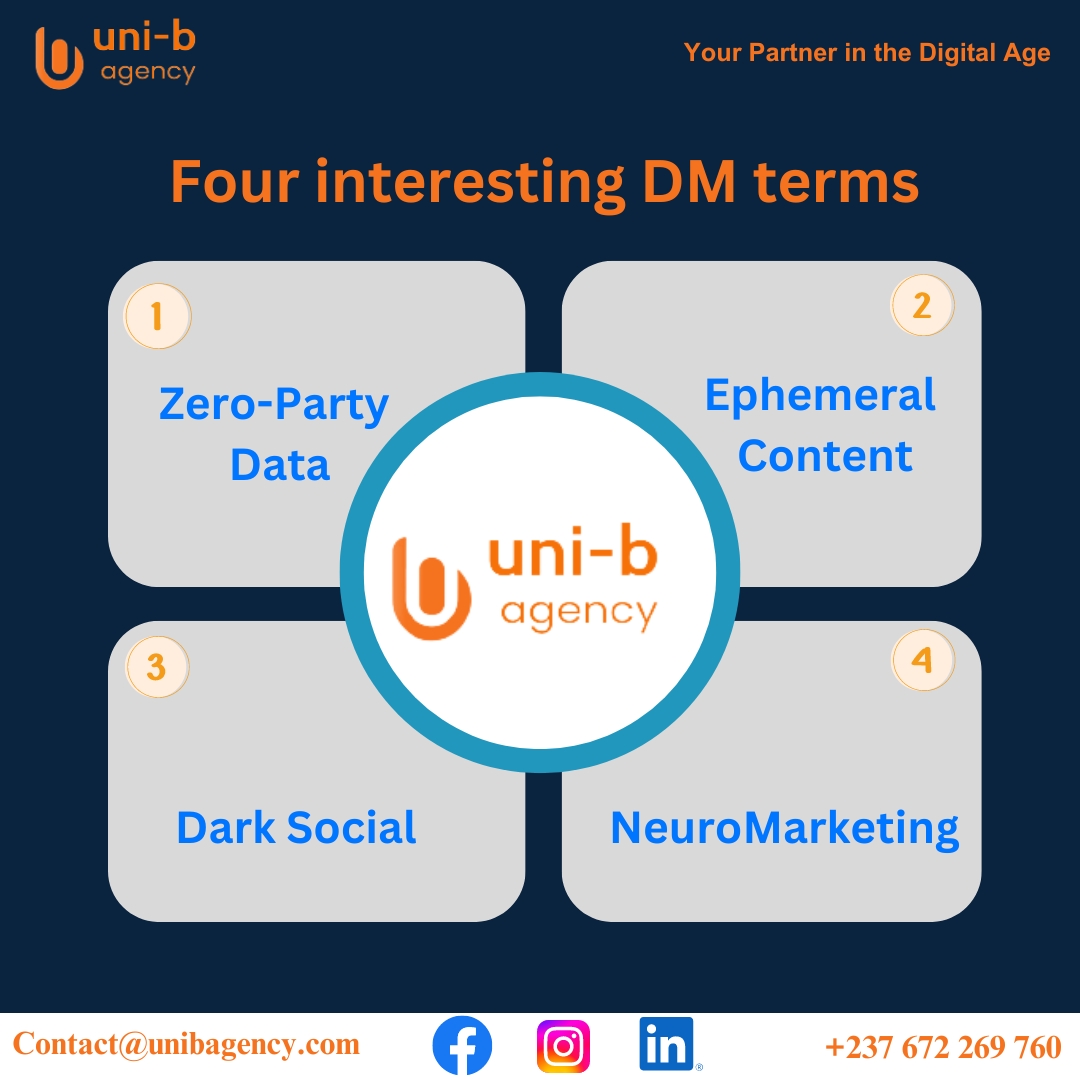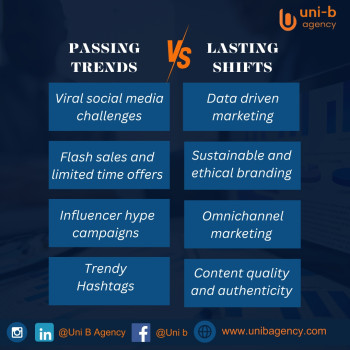In the rapidly evolving landscape of digital
marketing, staying informed about new terminology is crucial for crafting
effective strategies. This blog post will explore four important
concepts: Zero Party Data, Ephemeral Content, Dark
Social, and Neuromarketing. Let's dive into each term and
understand its significance.
Zero Party Data
Zero party data refers to information that a
customer intentionally and proactively shares with a brand. This data goes
beyond mere demographics or browsing behavior; it encompasses preferences,
intent, and feedback directly from the consumer. For example, if a customer
fills out a survey or shares their product preferences on a website, that
information is considered zero party data.
Importance:
- Trust and Transparency:
Collecting this type of data fosters a sense of trust between consumers
and brands, as customers are aware of what information they are providing.
- Personalization:
Brands can use zero party data to tailor marketing messages and offerings
precisely to individual customer needs, enhancing engagement and
satisfaction.
Ephemeral Content
Ephemeral content is any digital media that is
temporary and disappears after a set period. Platforms like Snapchat and
Instagram Stories popularized this type of content, which typically lasts for
24 hours. The fleeting nature of ephemeral content encourages users to engage
quickly and fosters a sense of urgency.
Importance:
- Authenticity:
Ephemeral content often feels more genuine and less polished, which
resonates with audiences seeking authentic interactions.
- Increased Engagement: The
temporary aspect can lead to higher engagement rates as users are
motivated to view content before it disappears.
Dark Social
Dark social refers to the sharing of content that
occurs through private channels, such as messaging apps or email, which cannot
be tracked by traditional web analytics. While social media platforms provide
insights into public shares, the private nature of dark social makes it
challenging to measure the full impact of social sharing.
Importance:
- Understanding Reach:
Marketers must recognize that a significant portion of their audience may
be sharing content privately, leading to potential underestimations of
their brand’s visibility.
- Strategic Planning: By
acknowledging dark social, brands can develop strategies to encourage
sharing through these channels, such as creating shareable content or
using referral programs.
Neuromarketing
Neuromarketing is an interdisciplinary field that
combines neuroscience and marketing to understand consumer behavior. By
studying brain responses to marketing stimuli, brands can gain insights into
how customers make purchasing decisions and what influences their emotions and
preferences.
Importance:
- Enhanced Targeting:
Neuromarketing techniques can help identify what resonates with consumers,
allowing brands to fine-tune their messaging and campaigns.
- Improved Customer Experience:
Understanding the emotional triggers that drive consumer behavior can lead
to more effective marketing strategies and a better overall customer
experience.
Conclusion
As digital marketing continues to evolve,
understanding terms like zero party data, ephemeral content, dark social, and
neuromarketing will empower marketers to create more effective strategies. By
leveraging these concepts, brands can build stronger relationships with their
customers, enhance engagement, and ultimately drive sales. Staying informed
about these trends is essential for anyone looking to succeed in the digital
marketing landscape.














